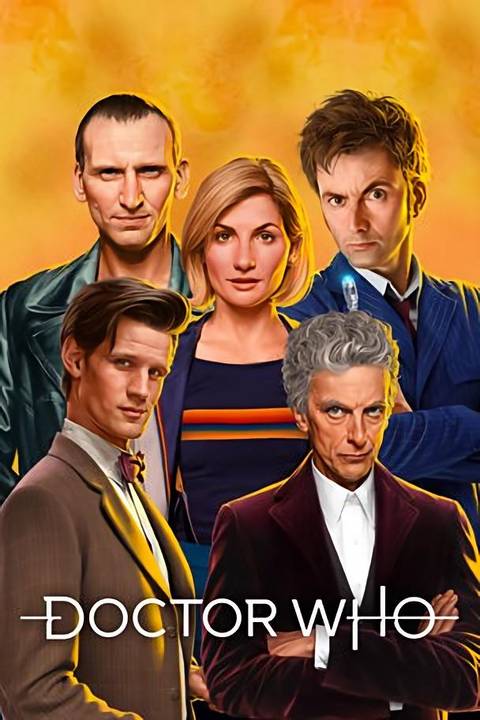Doctor Who has had pretty much the same formula since it debuted in 1963, making it all the more notable when an episode deviates from the show’s established blueprint. On Nov. 28, 2015, one of those outliers aired for the first time. It was so unique that it was tricky to judge where the episode belonged among the pantheon of iconic Doctor Who episodes, but it has gradually become accepted as the finest effort the long-running British sci-fi show has ever produced.
Most Doctor Who episodes see the show’s main character traveling through space and time in the TARDIS, almost exclusively with at least one companion in tow. A standard adventure for the show generally entails landing the TARDIS, detecting a threat, resolving it, and then moving on at the end of the episode. There is obviously a lot of wiggle room within those hallmarks, but most installments tend to stick pretty rigidly to this traditional Doctor Who framework, and it has served the franchise well for decades. Still, it’s always a breath of fresh air when an episode refuses to follow in the footsteps of its predecessors.
Why ‘Doctor Who’s “Heaven Sent” Has Become The Show’s Best Episode After 10 Years
Written by Steven Moffat and led by Peter Capaldi as the Twelfth Doctor, “Heaven Sent” is a masterclass in how to stray from the path to immaculate effect. The episode lacks many of Doctor Who‘s most recognizable elements, and yet rather than those absences acting as a hindrance, they help elevate “Heaven Sent” to legendary status. The Doctor doesn’t save the day, because there’s no day to be saved. He doesn’t arrive at or depart from the story’s core events via TARDIS, because there is no TARDIS to pilot. He doesn’t even get to wave his Sonic Screwdriver around and rattle off some impressive-sounding techno-babble.
On paper, it all sounds like a recipe for disaster, but Moffat’s unconventional script formed the basis of a highly revered work of art that Doctor Who would be poorer for if it had never been written. The entire episode is one huge enigma, with Capaldi doing all the heavy lifting while his two occasional co-stars fill in the small blanks. The big reveal of the Doctor being caught in a terrifying loop that has lasted billions of years and resulted in his death countless times hits like a ton of bricks, and even upon rewatch, there is something new to be taken from the experience beyond the initial shock value.
While “Heaven Sent” was well-received at the time, it was so different from every other Doctor Who episode that it was difficult for fans to place it in the show’s rankings. It was certainly fantastic, but it almost felt like a self-contained movie or an episode of a completely different show. And yet, “Heaven Sent” still manages to retain the very essence of what Doctor Who is all about, despite being stripped of almost all the show’s main identifiers. It whittles Doctor Who down to its core and builds outwards with fresh elements that fit into place so snugly that it really highlights how well Moffat understands the show in all its forms.
“Heaven Sent” is also probably the purest character study of the Doctor that a fan could hope for. Often hiding behind bravado and heroics, the Doctor’s true self can be easily obscured by the adventure at hand. In “Heaven Sent,” there is no nook, nor a single cranny, where Twelve can conceal himself to avoid being exposed to the audience in startlingly clear fashion. The episode zeroes in on the Doctor’s immense intelligence, endless resilience, and also his rarely-addressed vulnerability — both emotional and physical. “Heaven Sent” is about the Doctor and only the Doctor, offering up a fresh experience to Whovians that hasn’t been replicated since.
The Only ‘Doctor Who’ Episode That Could Beat “Heaven Sent” Is Also An Outlier For The Show
Today, “Heaven Sent” has an almost-perfect IMDb score of 9.6/10, and only “Blink” is higher on the list of best-rated Doctor Who episodes, with a rating of 9.8/10. Like “Heaven Sent,” “Blink” doesn’t adhere to the show’s recognized formula. It was also written by Steven Moffat, so maybe its uniqueness isn’t surprising. Although technically a David Tennant-era episode, “Blink” barely features the Tenth Doctor and is instead led by Carey Mulligan’s Sally Sparrow. In this way, “Blink” and “Heaven Sent” are almost exact opposites, as the former largely lacks the show’s main character, while the latter makes heavy use of him.
While “Blink” does have a marginally better rating than “Heaven Sent,” that doesn’t entirely reflect why they’re both so highly revered. Both have concepts that were groundbreaking for the show at the time, but “Blink” does still feel like a more conventional Doctor Who episode, despite limited screen time from the Doctor. As such, it’s easier to call it the “best” installment overall because it’s generally more accessible, as well as having existed for longer, giving it more opportunity to be immortalized.
“Heaven Sent” surpasses “Blink” in every way other than its IMDb score, but the 2015 effort is admittedly not for everyone. It’s a very weird episode, and it therefore doesn’t have an appeal that’s quite as broad as “Blink,” despite being so fantastic. If anything, it’s somewhat surprising that its brilliance has been recognized to such an extent by the Doctor Who fan base, even if it did take the better part of a decade to be fully accepted into the fold.

- Release Date
-
2005 – 2021-00-00
- Network
-
BBC
- Directors
-
Graeme Harper, Euros Lyn, Douglas Mackinnon, Jamie Magnus Stone, Charles Palmer, Rachel Talalay, Joe Ahearne, James Strong, Jamie Childs, Saul Metzstein, Toby Haynes, Wayne Che Yip, Nick Hurran, Richard Clark, James Hawes, Daniel Nettheim, Colin Teague, Keith Boak, Azhur Saleem, Adam Smith, Andrew Gunn, Nida Manzoor, Lawrence Gough, Paul Murphy

